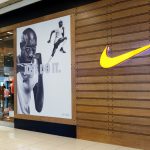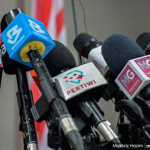By The Malketeer
In a world marked by geopolitical tensions, economic uncertainties, and social upheavals, conflicts can present significant challenges for businesses. However, there are brands that not only weather these adversities but thrive.
Their ability to navigate turbulent waters and emerge stronger speaks volumes about the resilience, adaptability, and strategic acumen of these exceptional brands.
Adaptability and Flexibility
Thriving brands are often characterised by their ability to adapt swiftly to changing circumstances. Recognising that consumer behaviours, preferences, and priorities can shift rapidly during conflicts, successful brands demonstrate flexibility in their strategies, product offerings, and marketing approaches.
Coca-Cola, for instance, has a rich history of adapting to geopolitical challenges. During periods of economic downturn or political unrest, the company has shown resilience by adjusting its marketing strategies and product portfolios.
For example, Coca-Cola successfully introduced smaller packaging sizes and focused on promoting value for money during economic crises, ensuring that its products remain accessible to a broader consumer base.
Social Responsibility and Purpose
Brands that actively engage in social responsibility and align themselves with a meaningful purpose tend to fare better during conflicts. Consumers increasingly value companies that demonstrate a commitment to ethical practices, sustainability, and social causes.
Unilever, a multinational consumer goods company, has consistently demonstrated a commitment to sustainability and social responsibility. During times of conflict and increased consumer awareness of environmental issues, Unilever’s brands gained traction by championing sustainability and ethical practices.
Unilever’s sustainability initiatives not only resonated with socially conscious consumers but also helped build a positive brand image.
Innovation and Technology
Embracing innovation and leveraging technology are essential for brands looking to thrive in conflict-ridden environments. This could involve adopting new technologies to streamline operations, enhance customer experiences, or even developing innovative products that address emerging needs.
Amazon’s ability to innovate and adapt to changing circumstances has been evident during various conflicts. The company started as an online bookstore but quickly diversified its offerings to become a global e-commerce giant.
During the COVID-19 pandemic, when traditional retail faced challenges, Amazon’s emphasis on e-commerce, cloud services, and rapid delivery positioned it as an essential service for millions of consumers worldwide.
The entertainment industry faces constant disruption, including conflicts related to content distribution, viewer preferences, and technological advancements. Netflix has thrived during such conflicts by embracing technology and adapting its business model.
The streaming service shifted from a DVD rental-by-mail model to a dominant player in the online streaming space. By investing in original content and leveraging data analytics to understand viewer preferences, Netflix has maintained its competitive edge even in the face of industry challenges.
Effective Communication
Transparent and empathetic communication is crucial during conflicts. Brands need to communicate with clarity, addressing concerns and demonstrating a genuine understanding of the challenges their customers may be facing.
Effective communication extends beyond crisis management; it involves maintaining an ongoing dialogue with customers to build trust and loyalty.
Diversification and Risk Management
Diversification of product lines, markets, and supply chains is a risk mitigation strategy that can help brands withstand the impact of conflicts. By reducing dependence on a single market or source of materials, brands can better navigate disruptions caused by geopolitical events, economic downturns, or other conflicts.
During the global economic recession of 2008, Microsoft showcased resilience by diversifying its product offerings. While many tech companies struggled, Microsoft successfully positioned its enterprise solutions, such as the Office suite and server products, as essential tools for businesses looking to cut costs and improve efficiency during tough times.
This strategic shift contributed to Microsoft’s continued success and growth.
P&G, a multinational consumer goods company, exemplifies resilience through diversification and effective risk management. During economic downturns, P&G continued to invest in a wide range of products, including both essential and discretionary items.
This diversified portfolio helped the company weather fluctuations in consumer spending patterns, ensuring a more stable financial performance during challenging times.
Agile Marketing Strategies
The ability to pivot marketing strategies quickly is a hallmark of thriving brands during conflicts. This may involve adjusting advertising messages, exploring new channels, or even repositioning the brand to better resonate with changing consumer sentiments.
Brands that can identify emerging trends and respond with agility are better positioned to thrive in turbulent times.
Tesla demonstrated agility and innovation in the automotive industry. Despite facing challenges such as production delays, regulatory issues, and market skepticism, Tesla has thrived by continually pushing the boundaries of electric vehicle technology.
The company’s focus on sustainability, cutting-edge technology, and a direct-to-consumer sales model has set it apart during times of industry disruption and uncertainty.
Employee Well-being and Engagement
Brands are not just about products or services. They are also about the people who contribute to their success. During conflicts, prioritising employee well-being and maintaining high levels of engagement becomes ciritical.
A motivated and dedicated workforce is better equipped to navigate challenges and contribute to the overall resilience of the brand.
Thriving during conflicts is not just about survival; it’s about leveraging adversity to emerge stronger. Brands that successfully navigate turbulent waters demonstrate a combination of adaptability, social responsibility, innovation, effective communication, risk management, agile marketing, and a commitment to employee well-being.
By embodying these traits, brands not only weather the storm but also position themselves for sustained success in a rapidly changing world.
MARKETING Magazine is not responsible for the content of external sites.









